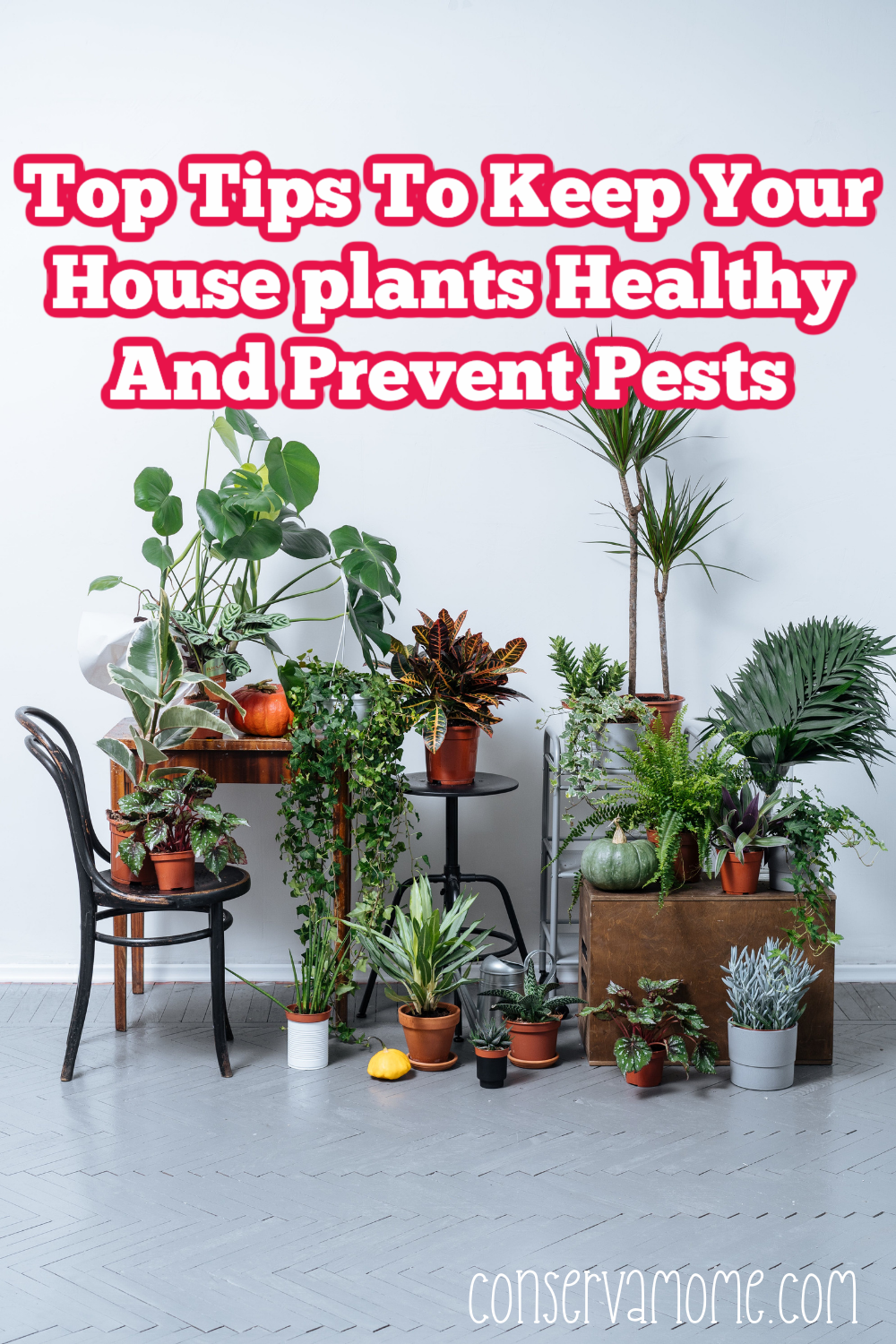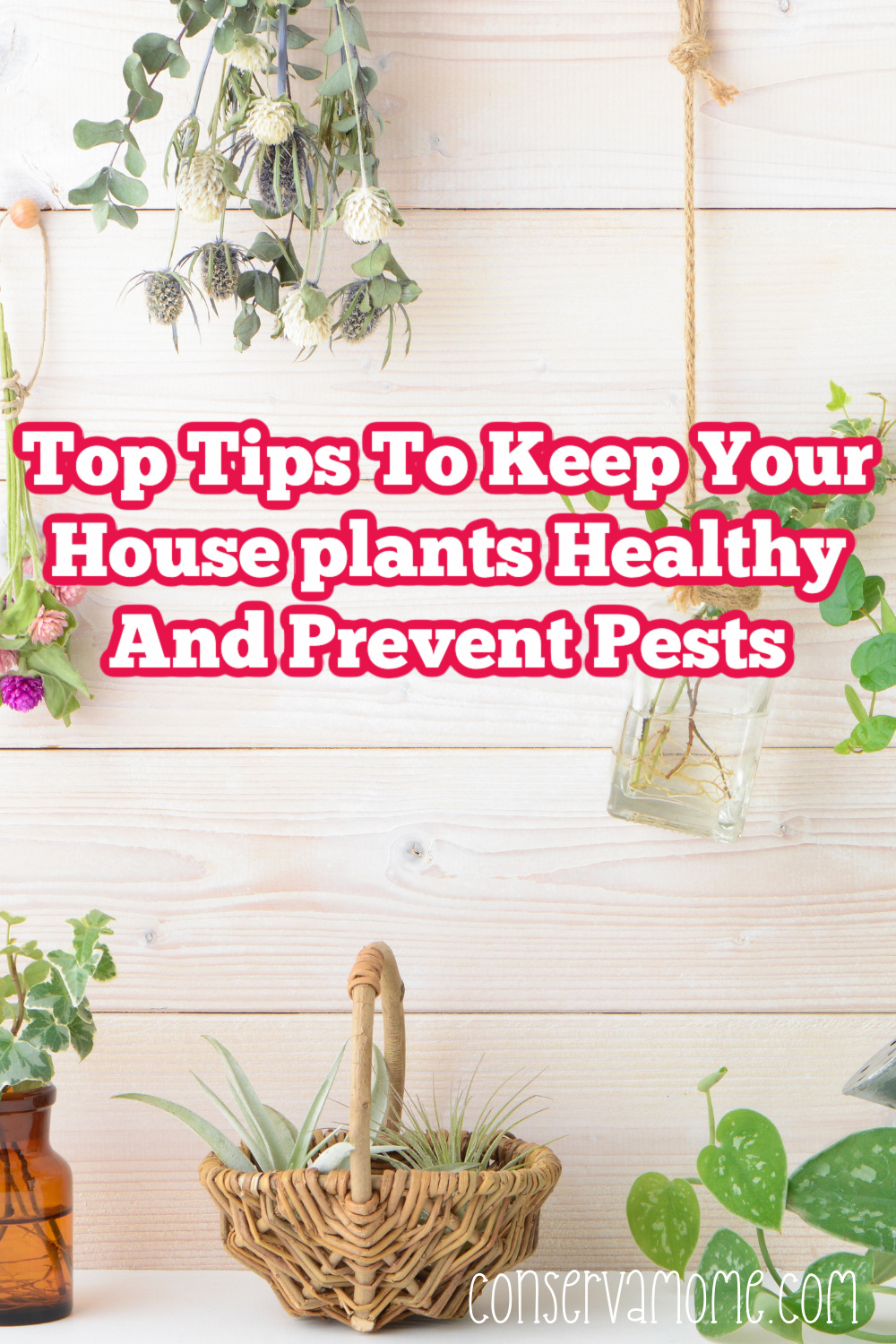Love keeping house plants but worried about keeping them nice and pest free? Here are some top tips to keep your houseplants healthy and prevent pests.
Top Tips To Keep Your Houseplants Healthy And Prevent Pests
Houseplants can help spruce up any living space, not to mention that having them around is good for your mental and emotional wellbeing. But, so many of us are wary of buying any house plants, due to a supposed lack of the coveted green thumbs. While plants do need a minimum of care so that they remain healthy and thrive, the process isn’t as complicated or convoluted as you may believe. There are a few tried and true tips that can help you keep your plants healthy and prevent pests from eating away at them. The following guide will help clear up a few things about basic care for houseplants.
Placement is Important
Of course, a basic rule of thumb for the vast majority of plants is that they need quite a bit of sun. Although, you should check first that the plant you’ve purchased requires a lot of suns, as opposed to minimal exposure since different plants have different care instructions according to their type. But, the most important rule to remember is to be careful where you place the plant. Any spot in which temperatures fluctuate, or are too extreme is generally bad for plants. Keep them away from the air conditioner and definitely don’t put them on top of the radiator. Also, if your windows get very cold and frosty in the winter, then keep plants away from that spot. In general, moderate temperatures tend to work best for plants.
Water Plants Consistently
You should be careful not to stress out a plant by too infrequent watering, or too much watering. Of course, each plant is different, from orchids, bamboo plants, and varieties of wandering jew; each requires watering at different intervals. When you buy a plant, you can always check with the expert at the nursery about the specific care instructions before taking it home. But in general, most plants appreciate having moist roots, but not wet ones since that can lead to rot. A few varieties, especially bamboo, can be watered only once a month, and a few others still prefer to be a bit dry between waterings.
If you purchase a self-watering plant, then that can help take a lot of the guesswork out of how to care for it. For all plants, most experts recommend not sticking to a regular watering schedule since other environmental variables can affect how lush the soil is at any given time. Instead, touch the soil with your finger and see how moist it feels before watering it further.
Maintain a Humid Environment
Most plants – even if they don’t need a lot of watering – require a humid environment to flourish. Make sure your home isn’t too dry, and keep humidifiers near your plant so that the leaves are always hydrated. Also, you should mist water on the leaves every so often to keep them healthy and supple. Even though you shouldn’t overwater your plants, you definitely need to keep them in a more humid environment so that they thrive.
Pest Prevention
Some pests are attracted to different plants; even if your home seems completely pest-free, they tend to appear when plants make their way to the scene. Experts recommend washing the leaves of your plants so that the dust doesn’t clog their pores, which can make it difficult for them to breathe properly, thereby attracting all kinds of unpleasant hosts to take root. Dust and grime attract spider mites and other types of insects, which eat away at the leaves, causing plenty of holes to form, which eventually will kill off the plant. You should inspect your plants’ leaves from time to time, as well as the roots, to see if there’s anything that looks suspicious. If you find anything that seems unsettling, take it to your local nursery so that the expert there can help diagnose the issue.
Fertilize Plants
Every so often, it helps to use fertilizer on your plants to help them flourish. Depending on how quickly the plants grow, and their age, most houseplants will have a bit of a growth spurt in the warmer months, so it’s very helpful to fertilize them during this time. The extra sunshine will only help, and this practice of fertilizing plants once or twice a year will ensure their long-term growth.


Leave A Reply!